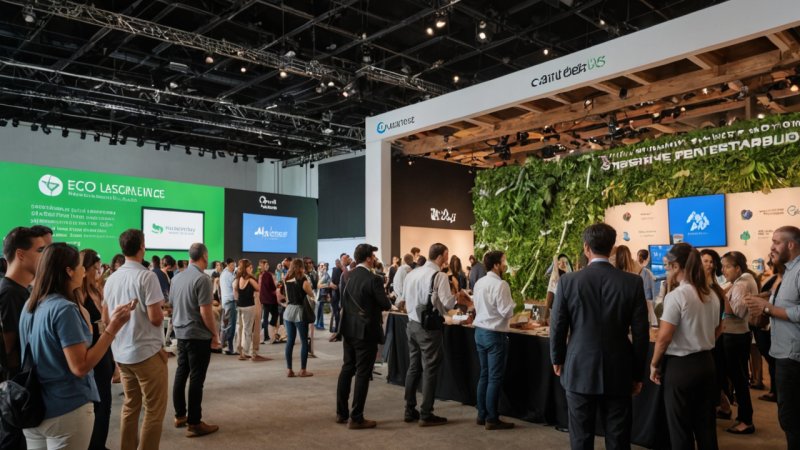As the world becomes more aware of environmental issues, the need for sustainable practices in event planning has gained momentum. Whether you're organizing a small gathering or a large-scale conference, incorporating sustainability into your event can significantly reduce your ecological footprint. This article will answer common questions related to creating a sustainable event planning checklist, providing you with the insights needed to make a positive impact.
What are the key elements of a sustainable event planning checklist?
A sustainable event planning checklist should include the following key elements:
- Venue Selection: Choose venues that prioritize sustainability, such as those with green certifications.
- Waste Management: Implement recycling and composting stations at the event.
- Transportation: Encourage the use of public transport, carpooling, or provide shuttle services.
- Food and Beverage: Source local, organic, and seasonal ingredients for catering.
- Materials: Use digital materials instead of paper, and opt for eco-friendly alternatives when printing is necessary.
How can I minimize waste during my event?
Minimizing waste can be achieved through several strategies:
- Plan ahead: Anticipate the number of attendees to avoid excess food and materials.
- Reusable Items: Use reusable plates, cups, and utensils instead of disposables.
- Digital Invitations: Send electronic invites to reduce paper waste.
- Leftover Management: Arrange for leftover food to be donated to local shelters or food banks.
What are some eco-friendly alternatives for event materials?
When selecting materials for your event, consider these eco-friendly options:
- Biodegradable Decorations: Use decorations made from natural materials that can decompose.
- Digital Signage: Use screens for announcements instead of printed signs.
- Sustainable Giveaways: Opt for items that are useful and environmentally friendly, such as seed packets or reusable bags.
How can I engage attendees in sustainability efforts?
Engaging attendees is crucial for the success of your sustainability initiatives:
- Awareness Campaign: Educate attendees about the sustainability measures being implemented.
- Incentives: Offer rewards for using public transport or carpooling to the event.
- Interactive Activities: Include activities that promote sustainability, such as workshops on recycling or planting.
What are the benefits of hosting a sustainable event?
Hosting a sustainable event can yield numerous benefits:
- Brand Image: Enhances your brand's reputation as environmentally conscious.
- Cost Savings: Reduces costs associated with waste disposal and purchasing materials.
- Community Impact: Contributes positively to the local community and environment.
How do I measure the sustainability of my event?
Measuring sustainability can be done through various metrics:
- Waste Audits: Assess the amount of waste produced and how much was recycled or composted.
- Attendee Feedback: Gather feedback on attendees' perceptions of sustainability efforts.
- Carbon Footprint: Calculate the overall carbon emissions associated with the event.






